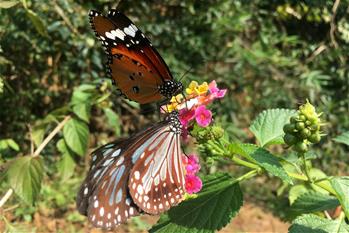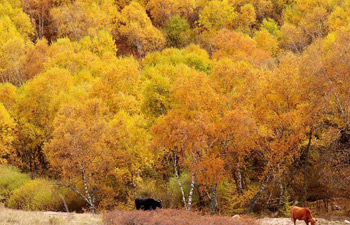GENEVA, Oct. 6 (Xinhua) -- Swiss researchers have revealed that nearly 75 percent of honey produced all over the world has been contaminated by pesticides, which, if consumed daily, may pose a long-term problem for human health, local media Swissinfo reported on Friday.
The study, carried out by the University of Neuchatel, analyzed nearly 200 samples of honey from all continents around the world, except Antarctica, and from numerous isolated islands as well.
Researchers intended to analyze the samples for five commonly used neonicotinoids -- acetamiprid, clothianidin, imidacloprid, thiacloprid, and thiamethoxam. They found that three quarters of all the honey samples contained at least one neonicotinoid.
Of the contaminated samples, 30 percent contained a single neonicotinoid, 45 percent contained two or more, and 10 percent contained four or five.
Concentrations of such pesticide contamination were highest in European, North American, and Asian samples. Although the concentrations were below the levels allowed by the EU for human food and animal feed, the pesticides can still pose a health risk, according to the study.
"The average concentration (in honey) was 1.8 nanograms per gram, while the thresholds for food are 10 and 50 nanograms per gram, depending on the molecule," said Alexandre Aebi, a researcher at Neuchatel University.
"We must imagine that we ingest this honey daily. It's therefore important to study the long-term effect of these low doses, as well as the cocktail-effect due to the presence of several substances," he added.
The researchers cite studies on the effects of neonicotinoids on vertebrates, such as impaired immune function and stunted growth. More than a third of the honey samples had concentrations of neonicotinoids known to be harmful to bees, and probably to other pollinators as well.
Results of the study has been published on an October issue of the journal Science.

















